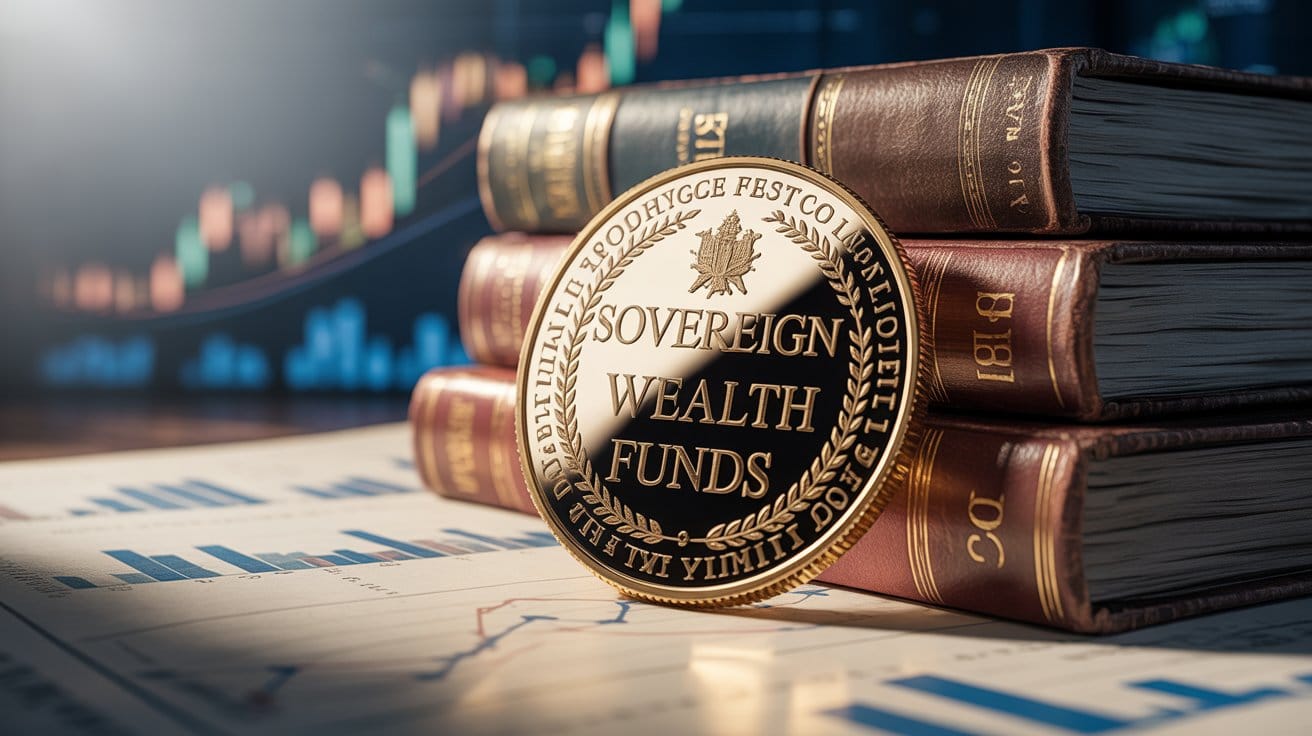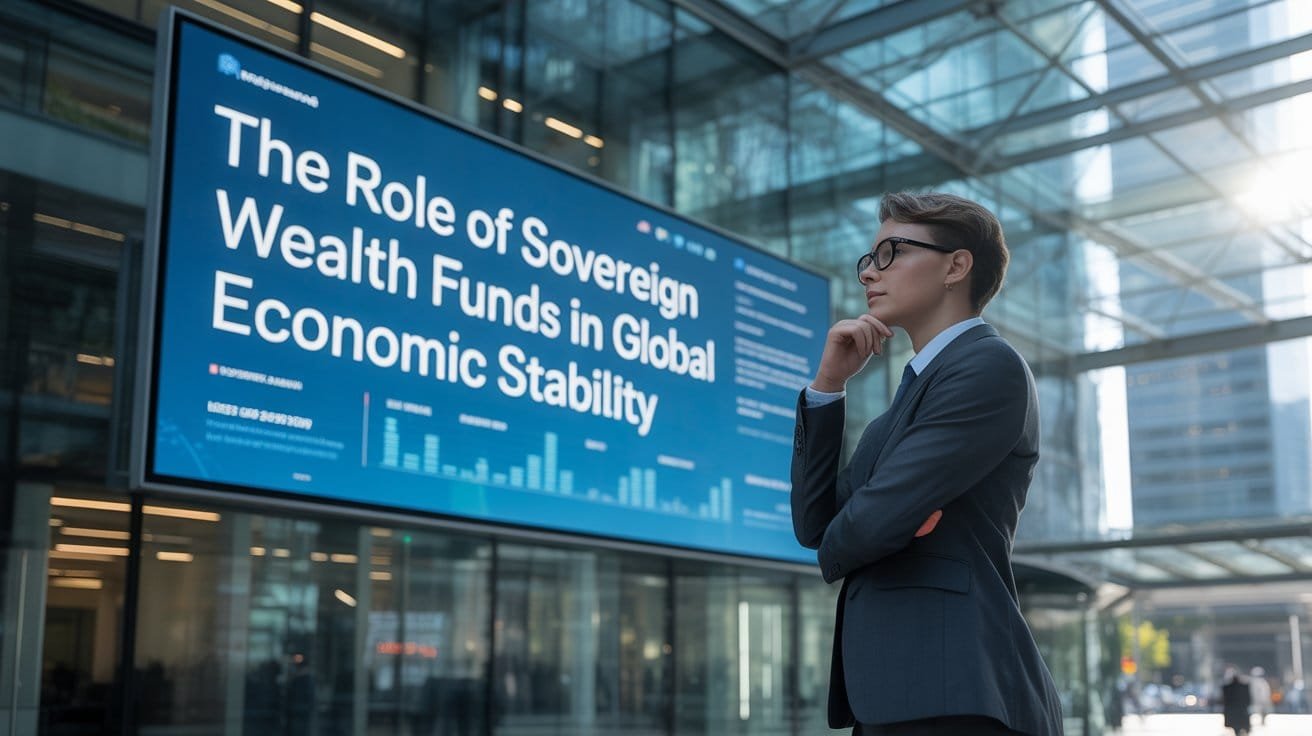The Role of Sovereign Wealth Funds in Global Economic Stability 🌍
Introduction
Sovereign Wealth Funds (SWFs) are powerhouse investors that quietly shape the global economy. These government-backed funds manage trillions in assets, from stocks and bonds to real estate and cutting-edge tech. They’re not just about profits—they help stabilize economies and keep global markets steady. Let’s dive into what SWFs are, how they work, and why they’re more important than ever in our connected world. 📈
What Are Sovereign Wealth Funds? 🏦
Sovereign Wealth Funds are state-owned investment pools built from a country’s surplus wealth. Their funds typically come from:
- 💰 Natural resource revenues (think oil and gas from Norway or Saudi Arabia).
- 🌐 Foreign exchange reserves from trade surpluses (like China or Singapore).
- 🏛️ Fiscal surpluses or proceeds from privatization.
Key Characteristics of SWFs
- ⏳ Long-term focus: Built to grow wealth for future generations.
- 🌍 Diversification: Investments spread across industries to reduce risk.
- 🛡️ Stabilization role: Cushions economies during shocks like falling oil prices.
Why Do Sovereign Wealth Funds Exist? 🎯
SWFs serve unique purposes based on a nation’s goals:
Stabilization Funds
Protect against volatile commodity prices. 🛢️
Savings Funds
Preserve wealth for future generations. 💸
Development Funds
Finance infrastructure and strategic projects. 🏗️
Pension Reserve Funds
Support aging populations and social programs. 👴

The Global Scale of SWFs 📊
As of 2025, SWFs manage over $11 trillion in assets worldwide. Here’s a look at the heavyweights:
Largest Sovereign Wealth Funds
Norway’s Government Pension Fund Global: ~$1.5T
China Investment Corporation: ~$1.3T
Abu Dhabi Investment Authority: ~$850B
Kuwait Investment Authority: ~$750B
How SWFs Promote Global Economic Stability 🌐
- Reducing Market Volatility: SWFs buy assets during market dips, stabilizing global markets. 📉
- Supporting National Economies: During crises like COVID-19, SWFs fund budgets to keep economies running. 💵
- Diversification of Risk: Spreading investments globally reduces reliance on single sectors. 🌍
- Infrastructure & Development Funding: SWFs finance projects like roads and ports, boosting trade. 🏠
- Enhancing Global Liquidity: Their massive assets provide cash flow to markets during tough times. 💧
Benefits of Sovereign Wealth Funds 🌟
- 📈 Long-term capital for global markets.
- 🛡️ Economic buffer for resource-rich nations.
- 💼 Support for future generations via savings funds.
- 🏦 Enhanced creditworthiness for countries with strong SWFs.
Risks and Challenges ⚠️
- 🏛️ Political influence: Governments may misuse funds for short-term goals.
- 🔍 Lack of transparency: Some SWFs don’t disclose their holdings.
- 📊 Market concentration risks: Over-reliance on oil or specific industries.
- 🌐 Geopolitical concerns: Foreign investments can raise security flags.
Case Study: Norway’s Sovereign Wealth Fund 🇳🇴
Norway’s Government Pension Fund Global is a shining example of SWF success. Built on oil revenues, it invests in over 9,000 companies worldwide, focusing on ethical investing and ESG (Environmental, Social, Governance) standards. It balances domestic welfare with global market stability, showing how SWFs can make a difference. 🌱
The Future of Sovereign Wealth Funds 🔮
SWFs are evolving to meet new challenges:
- 🌿 Sustainable investing: More focus on ESG and green finance.
- 🤖 AI & data-driven decisions: Technology is shaping smarter investments.
- 🌍 Emerging markets: Supporting infrastructure in Africa, Asia, and Latin America.
- ☀️ Climate resilience: Shifting from fossil fuels to renewables.
Conclusion
Sovereign Wealth Funds are more than just investment tools—they’re economic anchors. By stabilizing markets, supporting national economies, and driving global projects, they play a vital role in keeping the world’s financial system balanced. As challenges like climate change and market volatility grow, SWFs will continue to shape a stable, sustainable future. 🌎
FAQs on Sovereign Wealth Funds ❓
What is the main purpose of sovereign wealth funds?
They manage national wealth for long-term stability, savings, and economic growth.
Which country has the largest sovereign wealth fund?
Norway, with its Government Pension Fund Global, manages over $1.5 trillion in assets.
Are sovereign wealth funds risky?
They’re generally less risky due to their long-term focus, but poor management or lack of transparency can create risks.
How do SWFs impact global markets?
They stabilize markets by providing liquidity, investing during downturns, and funding long-term projects.
🌐 Explore More on Global Market Today
Dive deeper into the latest updates, insights, and expert analysis across our most popular categories.
Stay informed on business, economy, AI, and more – all in one place.
📈 Market
💼 Business
🏛️ Politics
🤖 Artificial Intelligence
🔧 Technology
₿ Cryptocurrency
🌍 Economy
💰 Personal Finance
⚡ Fintech Tools
Hindi Version
